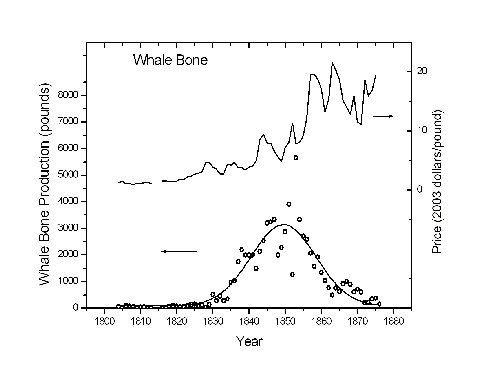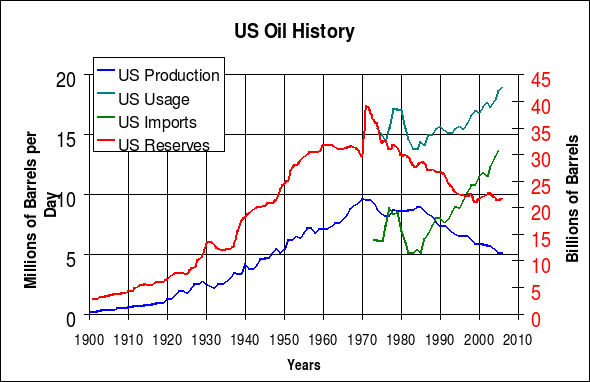Education:
Below are the production curves of whale oil and whale bone. Obviously whales were not a finite resource, but when whaling was done in such a big scale that the whale reproduction rate couldn't keep up with it, it nevertheless behaved like a finite resource. You can recognize the bell curve:
Here is the graph with price (inflation adjusted). You can see that price increased signifficantly when the bell curve reached the top and stayed high from there on:
P.S.: By the way whaling is a good example for abiotic fans.It shows that even a renewable resource can be used up if the rate of usage is way faster than the rate of replenishment/reproduction.(dodo, American buffalo*,etc.)
*Oh my god, I have just realized the Buffalo doesn't Roam anymore!!!

(probably because it wasn't abiotic)



